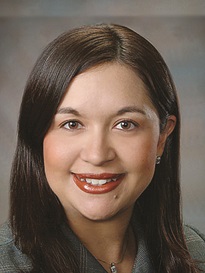




Stay-to-play. Some love it, some hate it and some view it with what can only be described as a love-hate relationship.
Many times, the reasons for the ‘hate’ aspect are not caused by the policy itself but by the need to enforce it. And enforcement is, after all, a double-edged sword. While it’s essential to maintain fairness among attendees, many tournament organizers are fearful of discouraging potential participants who instead want to search discount travel sites and make their own lodging arrangements.
The issues surrounding stay-to-play were discussed by members of the Texas Association of Convention & Visitors Bureau (TACVB) during their 2013 annual meeting in El Paso. The insights from that group were so interesting that SDM decided to form a virtual roundtable of four TACVB members and to ask them to share their views.
Our guests were as follows:
Cissy Aberg, sport sales manager, Plano Convention & Visitors Bureau
Kindra R. Fry, vice president of sales & marketing, Bryan College Station Convention & Visitors Bureau
Scott Harrison, sports director, Visit Lubbock
Blasita Lopez, director, Laredo Convention & Visitors Bureau
Sports Destination Management: What, in your opinion, is the number one benefit tournament directors have from participating in stay-to-play?
Kindra Fry: The benefit to the tournament director is really knowing the trends of their participants and being able to supply real information to the potential hosts of their events. Tournament directors can also know where their participants are for easier contact in case of emergencies or changes to schedules, etc.
Also, in our community, we have a hotel occupancy tax (HOT) Grant Application process for tournament directors to apply for additional funding for their event. With stay-to-play, they will ensure they receive the full amount of funding they are eligible to receive as the funding is dependent on hotel usage.
Cissy Aberg: Building a history of ROI and economic impact.
Scott Harrison: Participating in a stay-to-play during tournaments makes it easier for the host city and the tournament director to track room nights, thus allowing for more help and cooperation for future tournaments.
Blasita Lopez: The number one benefit for tournament directors to adhere to a stay-to-play policy is less stress and a healthier competitor environment.
SDM: Who should enforce it?
Aberg: All parties must act to enforce.
Lopez: The tournament director or entity itself; CVBs should always facilitate this by providing the accommodations and rate information, as well as facility maps and useful group/visitor information, but should not have a role in the enforcement of the policy.
SDM: How should it be enforced?
Aberg: The local convention and visitors bureau guarantees the availability, convenience and reliability of the hotels offered by our event housing services. Competitive room rates and large blocks of rooms are basic youth sport requirements, but lots of double-bedded rooms, quick hot breakfasts and on-site laundry facilities are also priorities. Additionally, Plano hotels will be no further than ten miles or fifteen minutes from any one of our tournament facilities.
Hotels and their staff are the front door to any stay-to-play policy. They must engage in a contract with the event organizer where they agree to block a certain number of rooms and room styles at a specific price.
Event directors must be diligent in enforcing the policy with the teams as well as with hotels. Periodic audits should be performed to make sure the hotels are holding to the terms of the agreement, particularly those preventing the hotels from offering lower rates than the tournament rate during the event dates. Event directors must be also willing to enforce their policy with the participants and have the means to cross-check the teams most likely to need lodging with those who have booked rooms. It is critical that some sort of reparation is in place for teams that either purposefully or unknowingly avoid staying in approved hotels under the stay-to-play policy.
If teams and participants are committed to the event and its organizers, they should make their best efforts to comply with the policy. Coaches and team administrators must understand and support the policy and communicate it to their teams, parents and other travel partners. It is equally important that all participants staying at the local hotels communicate any problems with the booking process or any shortfall in expectations as to the quality of the hotels or the event venue. Timely communication is imperative, since the organizer or the host bureau is unlikely to impact issues at particular hotels once the event is ended.

Lopez: If you break the rules once, you don’t get an opportunity to come back to the next tournament, and you forfeit any opportunity to bid on hosting future tournaments.
SDM: Do you have special hints for people who find this to be too much of a problem?
Aberg: It is an arduous process…no way out of the preparation and follow-up that must be done. If they can’t get it together, just raise the tournament rates and tell them why…that you don’t want to run a hidden rebate system that most tournaments use.
Lopez: A well-informed user is the key. Prepare a manual or step-by-step instruction sheet, a one-page flyer on how to use the room booking mechanism so that they have something to refer to when they are getting those reservations made and make sure the hotel has a fallback in place; maybe they can contact the hotel directly and get assistance over the phone. The hotel may be able to code the rooms to the same system from their side, implement the same rate if the user encounters problems.
SDM: What are some successful ways you have seen it implemented?
Aberg: Best way I’ve seen is when teams have to have a hotel confirmation to pick up their registration packets and before they play. Then after the event, if they send in proof of a hotel stay, they get a rebate from the event. Also, give the teams an “out.” If they don’t want to use the housing system, but need a hotel, let them pay a fee to get out of it. The going rate in our area is $150 to $175.
SDM: What hints would you give to a group implementing stay-to-play for the first time?
Aberg: Go ahead and make it transparent. Tell the folks that some of their hotel room rate is going to tournament expenses.
Fry: I would say to make sure if you are going to require teams to stay in particular hotels that you offer a wide selection of hotel brands. The more choice you offer, people who are part of those rewards programs will have more options to stay where they can collect rewards points. That also will allow for several price points. Also, if you can get hotels to agree on rates that are somewhat close, then participants making the reservations will not feel like one group is getting a better deal.
Harrison: It’s essential to be sure the teams and everyone involved understand the policy from the beginning. It also helps to get help with room night tracking from a reputable tracking service.
Lopez: Advance notice is key; have a template budget ready to help them prepare players and parents for the travel experience; and then engage the Chamber of Commerce or Visitors Center/Bureau to assist with the travel experience. Plan a site visit in advance of the event to see hotels and understand travel distance between accommodations and field of play. This will help the director understand how to maneuver the host community and be able to pass along practical advice to coaches and traveling fans.
SDM: What is the best way to explain the policy to attendees so they understand the importance and benefits of participating?
Fry : Some communities will link rebates or other amenities to the program. Explaining that their registration fees can be kept down by them staying in the preferred hotels will help. If they feel like it makes a difference for the experience their kids will receive, I believe they will be more apt to stay in the preferred hotels. It is almost like they are giving back to the program while keeping their registration or membership costs at a minimum.
Lopez: Engage some help from an outside entity like the chamber of commerce or sports commission, or another entity that use the same policy, like the local athletic director or sports director at the local community college; don’t try to carry the message all by yourself. Use a third party with credibility and authority to help explain the new policy and assist in getting the buy-in. Get some buy-in from some of the more influential individuals in the audience in advance, so that when they react they are giving you a positive reaction on the spot in front of all the other folks getting the same presentation.
SDM: On what do you blame the problem of people trying to get around the policy – low-cost internet travel sites that promise ‘unbeatable room rates’? The down economy? Something else?
Aberg: Clearly, the internet ease of reserving hotel rooms is a huge issue. Since the downturn in 2008-2009, people have less money to spend on their kids’ extracurricular activities. Fewer chaperones and tighter rosters mean kids run amok and teams have to cancel at the last minute if any one or two players cannot play.
SDM: Do you find you have to approach the hotel about the problem? Do you find you have to approach the participants in the event (or their parents)?
Aberg: Everyone is indignant when you catch them lying. It’s ugly and mostly we let people off the hook. Reprimands are only in the form of not including hotels in the next round. I once heard a story that a tournament director busted a team for staying the first night at an approved hotel and then transferred their group to another hotel. He waited until they were in the championship game and went to them and told them (during warm-ups) that they could either pay the $500 fine or forfeit. Of course, the team paid. They were in the finals and the parents were in the stands. This director has not had too much trouble getting his teams to comply since then. I think one bust goes a long way…hotel or team. To tournament directors, I say make it count. The story of the team in the finals was a perfect situation for him to have maximum effect.
Lopez: We have been the go-between with the tournament director, the hotel for the most part and only end user in very limited cases. They have been receptive any time that we have addressed the matter and have committed to doing better. Most of the time the hotel offers a little something extra to assist with the next tournament and that helps the tournament director to calm down and continue doing business in the market again.
